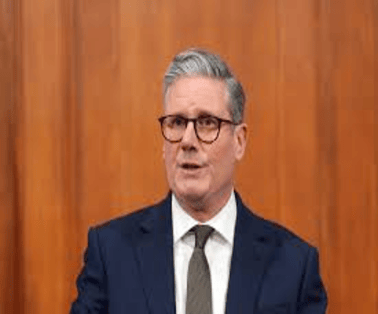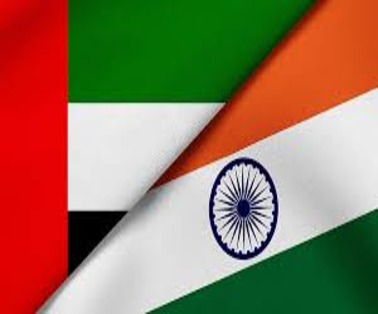Voters in the United Kingdom delivered a historic verdict in the 2024 general election, electing Keir Starmer as the new Prime Minister. Under Starmer’s leadership, the Labour Party achieved a landslide win, ending 14 years of Conservative rule led by Rishi Sunak.
Keir Starmer’s Labour Party Achieves a Landslide
- Keir Starmer’s Labour Party won 412 seats in the 650-member House of Commons, a remarkable gain of 211 seats from the 2019 general election.
- The Conservative Party, led by Rishi Sunak, suffered a devastating defeat, securing only 121 seats—down 250 from the previous election.
- Labour’s vote share stood at 33.7%, while the Conservatives trailed with 23.7%.
Keir Starmer, now the 58th Prime Minister of the UK, pledged to deliver real change and results, emphasizing integrity, economic stability, and restoring public trust in government.
British Indians Shine in Keir Starmer Era
The 2024 election also saw a surge in Indian-origin representation in Parliament. Keir Starmer’s inclusive vision has aligned with the growing diversity in UK politics.
- 26 Indian-origin candidates were elected, marking a significant increase from 15 in the previous House of Commons.
- A record 107 Indian-origin candidates contested the 2024 general election.
- The UK’s Hindu population, which stands at over 1 million, played an important role in the democratic process.
Notable Indian-Origin Winners
Conservatives:
- Rishi Sunak, despite leading his party to defeat, retained his Richmond and Northallerton seat.
- Priti Patel (Witham), Shivani Raja (Leicester East), Suella Braverman (Fareham and Waterlooville), Gagan Mohindra (South West Hertfordshire), and Claire Coutinho (East Surrey) also held their seats.
Labour:
Under Keir Starmer’s leadership, several British-Indian candidates emerged victorious:
- Kanishka Narayan (Wales’ first ethnic minority MP), Seema Malhotra, Valerie Vaz, Nadia Whittome, Preet Kaur Gill, Tanmanjeet Singh Dhesi, and Sojan Joseph made headlines.
- New Labour winners include Satvir Kaur, Jas Athwal, Baggy Shanker, Harpreet Uppal, Warinder Juss, Gurinder Josan, Sonia Kumar, Sureena Brackenbridge, Kirith Entwistle, and Jeevun Sandher.
Liberal Democrats:
- Munira Wilson successfully reclaimed her Twickenham constituency.
UK Parliament Under Keir Starmer: Structure and Governance
The UK Parliament, now under Prime Minister Keir Starmer, continues to function as a bicameral legislature consisting of:
- House of Commons: 650 elected members.
- House of Lords: Unelected, advisory body with limited legislative blocking powers.
Governance Highlights:
- The UK is a constitutional monarchy and parliamentary democracy.
- King Charles III remains the ceremonial head of state.
- Keir Starmer, as leader of the majority party, holds executive power as Prime Minister.
Voting System in the UK
- The First-Past-The-Post (FPTP) system is used for the House of Commons.
- A majority (326+ seats) enables the winning party’s leader to become Prime Minister—as achieved by Keir Starmer in this election.
UK-India Relations in the Keir Starmer Era
India and the UK share a strategic and historic relationship that is expected to evolve positively under Prime Minister Keir Starmer.
Key Bilateral Dimensions:
Trade and Economy:
- UK-India bilateral trade reached £36.3 billion in 2022–23.
- India’s exports to the UK totaled £21.6 billion; imports stood at £14.7 billion.
Investments:
- India ranks as the second-largest investor in the UK.
- The UK is India’s 6th largest FDI source, with $33.88 billion invested since 2000.
Strategic Dialogues:
- Mechanisms such as JETCO, EFD, DCG, and HAD promote bilateral cooperation.
- The India-UK Infrastructure Finance Bridge and Space Parks Partnership signify growing tech and innovation ties.
Defence and Military Cooperation:
- Joint exercises like Ajeya Warrior, Konkan, and Cobra Warrior illustrate military collaboration.
Education and Culture:
- Over 185,000 Indian students study in the UK.
- MoUs like the UKEIRI Mobility Programme and Mutual Recognition of Qualifications enhance educational exchanges.
People-to-People Ties and Migration
- The Young Professionals Scheme, jointly announced by Keir Starmer’s predecessor Rishi Sunak and PM Modi, continues to facilitate skilled youth exchanges.
- The Indian diaspora in the UK exceeds 1.86 million, contributing immensely to business, politics, healthcare, and culture.
Britain’s Significance to India – And Vice Versa
Why the UK Matters to India:
- Strategic influence in the Indo-Pacific, advanced defence capabilities, and global financial hubs like London.
- Strong supporter of India’s UNSC membership bid.
Why India Matters to Britain:
- Fastest-growing major economy and youthful skilled workforce.
- A Free Trade Agreement (FTA) with India aligns with Britain’s Global Britain agenda post-Brexit.
Keir Starmer’s Role in UK’s Global Reset
As Britain navigates its post-Brexit identity, Keir Starmer’s leadership presents a crucial pivot point in redefining international alliances. The Labour victory may accelerate negotiations on the India-UK Free Trade Agreement (FTA) and deepen strategic cooperation.
Conclusion
Keir Starmer’s rise to power marks a turning point in British politics. With a strong mandate, a commitment to reform, and a focus on international partnerships—including with India—Starmer is poised to shape a new chapter in UK governance. As the UK strengthens ties with its global partners, India is likely to remain central to its economic and strategic calculations.
To Download Monthly Current Affairs PDF Click here
Click here to get a free demo
Discover all about CLAT Exam



